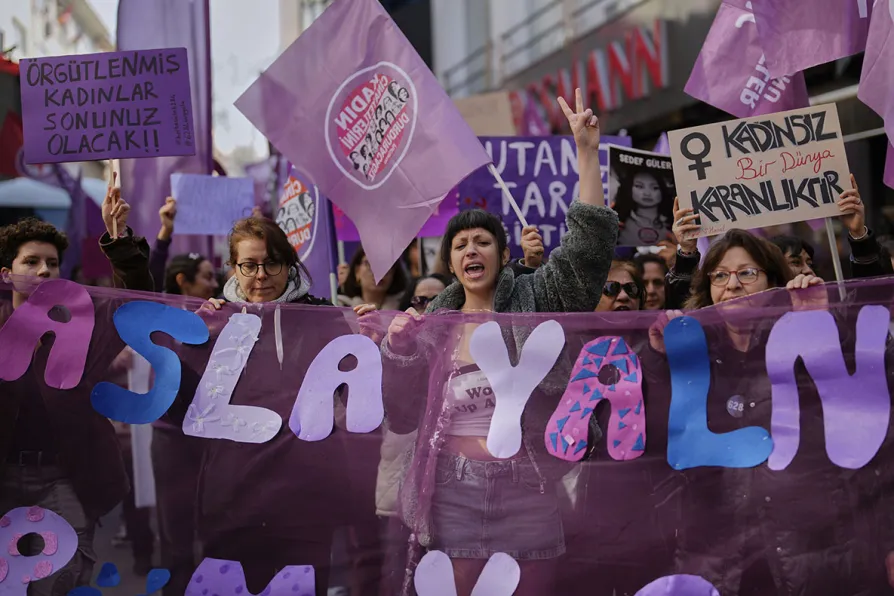Women take to the streets across the world demanding end to inequality and violence

 Women chant slogans during a protest marking International Women's Day in Istanbul, Turkey, March 8, 2025
Women chant slogans during a protest marking International Women's Day in Istanbul, Turkey, March 8, 2025
WOMEN took to the streets of cities across Europe, Africa, South America and elsewhere to mark International Women’s Day with demands for ending inequality and gender-based violence.
On the Asian side of Istanbul, Turkey’s biggest city, a rally in Kadikoy saw members of dozens of women’s groups listen to speeches, dance and sing in the spring sunshine.
The colourful protest was overseen by a large police presence, including officers in riot gear and a water cannon truck.
Similar stories

Despite the harsh conditions they face, Iranian women have proved to be vanguards in the struggle for fundamental changes in our country, says Dr AZAR SEPEHR

There’s no room for feminists to be complacent about the growth of extremism and misogyny worldwide, warns HAILEY MAXWELL

The failure of international institutions, from the UN to the ICC, to hold the Taliban accountable for the brutal repression of women creates a climate of tolerance for daily crimes by the patriarchal regime, writes SHUKRIA RAHIMI










